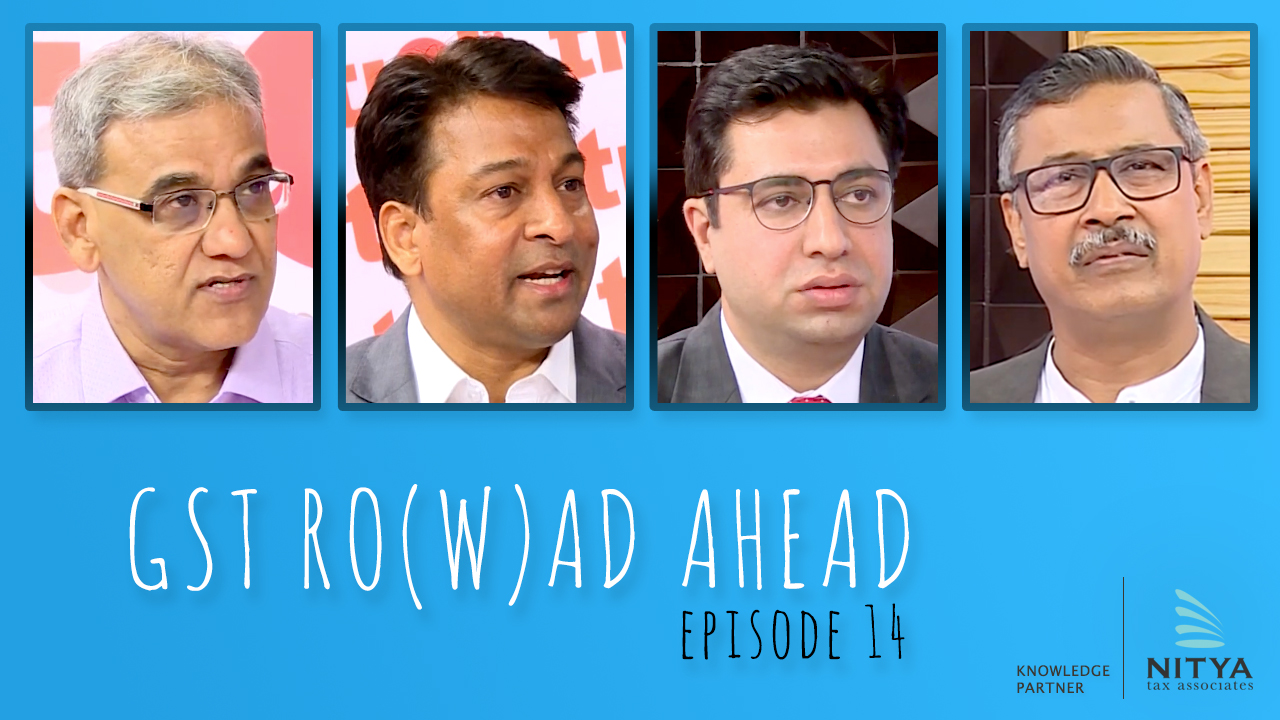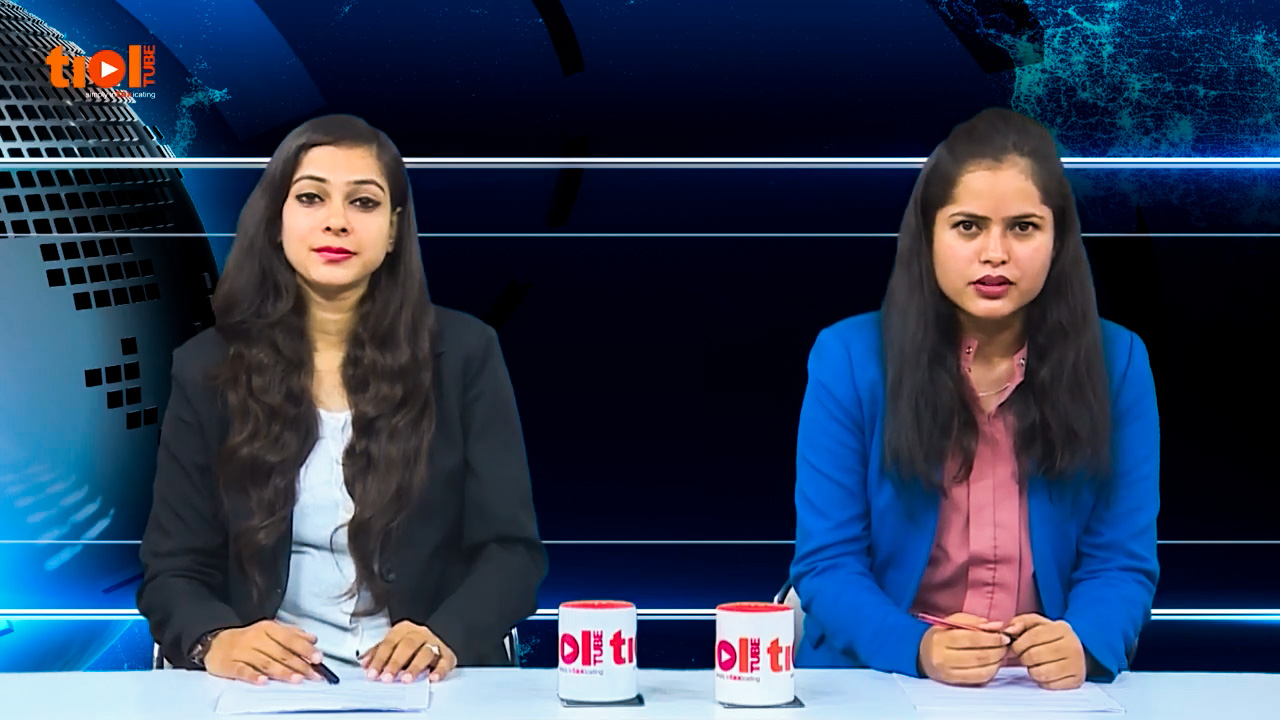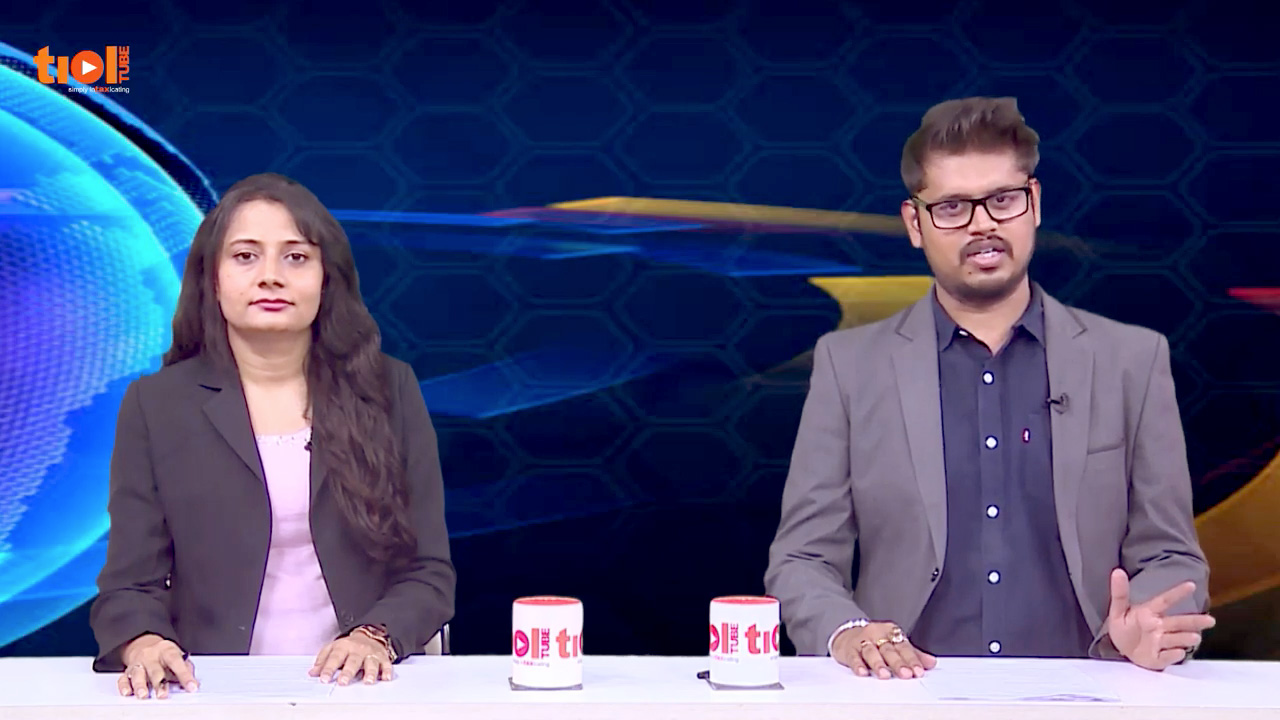| SERVICE TAX
ST - The issue involved is the admissibility of group insurance accident policy that had also covered the family members of employee which is admittedly not under statutory liability as envisaged in ESI Act, 1948 - Going by the judgement of BNY Mellon International Operations (I) Pvt. Ltd. - 2016-TIOL-1851-CESTAT-MUM and Nutrine Confectionery Co. Ltd. - 2012-TIOL-450-CESTAT-BANG, if differential premiums are required to be paid for inclusion and exclusion of family members of employees, credit is supposed to be restricted to the premium paid for the employee alone - In the Nutrine Confectionery Co. judgement, while confirming accident insurance policy as input service, the matter was remanded back for verification as to if premium was paid for the employee only and not in respect of the entire family members - In this regard, assessee has submitted copy of a Declaration Certificate received from Oriental Insurance Company Ltd., a Government of India undertaking dated 14-01-2019, in which clear reference is made that there was no additional insurance premium collected by Insurance Co. for extending the benefit to the dependent family members of employee and the same can be taken as additional evidence under Rule 23 of CESTAT Procedure Rules since assessee was allowed by Bench on 20-12-2018 to produce such document - This being the factual and legal scenario, Tribunal have got no hesitation to hold a finding that the entire credit availed towards purchase of Accident Group Insurance policy is admissible to the assessee and it had rightly availed so: CESTAT
- Appeal allowed: MUMBAI CESTAT
Surya Enterprises Vs CCE & ST
ST - Department rejected the Voluntary Compliance Encouragement Scheme [VCES] application for the reason that audit was initiated as departmental internal audit team had visited the appellant's unit on 26.11.2012 and that VCES application cannot be entertained in view of section 106(2) of the Finance Act, 2013 - SCN was issued to the appellant proposing to reject VCES application - after due process of law, the original authority confirmed the rejection, which was later upheld by Commissioner (Appeals) - appeal to CESTAT.
Held: From the Board clarification 170/5/2013-ST dated 8.8.2013, it can be seen that only when a visit is made by the audit team/department, the audit can be said to be initiated - in the present case, the department though contends that they have visited the premises on 26.11.2012, no documents have been produced to establish the same - from the Circular, the department is duty bound to maintain register of visit for audit purposes - in the reply to the SCN itself, the appellant has taken the plea that there has been no visit of audit party on 26.11.2012 - it is also submitted that the father of the appellant had passed away on 8.11.2012 and the office was closed during the said period - a letter merely requesting for furnishing of documents cannot be considered as initiation of audit as clarified by the Board in the said Circular - in view of the above, no hesitation to conclude that the rejection of VCES stating the reason that audit has been initiated is against the facts of the case - the impugned order is set aside - the appeal filed by the appellant is, therefore, allowed : CESTAT [para 7, 8]
CGST & CE Vs Orchid Chemicals And Pharmaceuticals Ltd
ST - The assessee is engaged in providing various services such as Banking and Financial Services, BAS and Transport of Goods by Road Services - A SCN was issued demanding Service Tax under head Intellectual Property Service along with interest under Section 75 of FA, 1994 - It was also proposed to impose penalties under Sections 76, 77 and 78 of the Act - It is the case of Department that the assessee had rendered Intellectual Property Rights Services on which they had not discharged the Service Tax - The assessee’s case is that they had rendered these services to clients outside India and hence, they amount to Export of Services which are exempt - The Adjudicating Authority, in the impugned order, observed that the assessee produced a CA’s certificate certifying that the amount has been received in foreign currency - Thereafter, the Department referred the matter to Director (Cost) who confirmed the receipt of foreign exchange, but was unable to link it to the exports item wise - The assessee clarified that this was because the income for services which were rendered were received during the next financial year in some cases - They also argued that the accounting of foreign exchange was in consonance with the accounting standards of ICAI - After considering all these facts and evidence produced before him by the assessee, the Adjudicating Authority dropped the demand raised in SCN - The findings of the Adjudicating Authority found well reasoned and the demand raised in SCN alleging that the remuneration for the IPR Services were not received in foreign currency is unsustainable and unsubstantiated: CESTAT
- Appeal dismissed: CHENNAI CESTAT
CENTRAL EXCISE
Pepsico India Holdings Pvt Ltd Vs CCE & ST
CX - The issue involved is, whether the assessee is entitled for Cenvat credit in respect of services of Annual Maintenance Charges (AMC) of visi coolers located at their Dealer/Retailer's premises - Even though the visi coolers are installed at the Retailer/Dealer's premises but the same are owned by assessee, therefore the service of AMC of visi coolers were received by assessee which is in relation to their business activity as sales promotion and advertisement - Therefore, the AMC service of visi coolers, which are owned by assessee, is an input service and accordingly, the Cenvat credit is admissible - Hence, the impugned orders are set-aside: CESTAT
- Appeals allowed: AHMEDABAD CESTAT
CX - The assessee is engaged in manufacture of Color Picture Televisions - For the manufacture of various plastics moulded parts/items, they are sending moulds and dies to the job-workers in terms of provisions of Rule 4 of CCR, 2004 - As the said moulds and dies stands imported by them or indigenously procured on payment of duty, they availed the benefit of Cenvat credit of duty paid on the same - Later, assessee started clearing the said moulds and dies by reversing the Cenvat credit and again took the same, as and when they received back the moulds from the job workers - Revenue's only objection, which is based on audit objection is that when the assessee received back the said capital goods from their job workers, the duty required to be paid by the job workers in terms of the provisions of Rule 3 (5) A (a) should have been recalculated on the basis of percentage provided therein - As such, they sought to deny re-crediting of Cenvat credit amount and raised a demand - If the revenue was of the view that the provisions of Rule (3) (5) (a) & (b) are applicable, the same would apply to the job workers who had cleared the moulds and dies after having put the same in use - The assessee had availed the credit of duty paid by the job workers, who had taken the credit of the duty paid by assessee by way of reversal of Cenvat credit, at the time of clearance of moulds and dies - It is well settled law that an assesse is entitled to credit of duty 'PAID' by the sender of the goods and not payable by him - The assessments done at the job workers end cannot be reopened - No merits found in the revenue's stand - Accordingly, the impugned order is set aside: CESTAT
- Appeal allowed: ALLAHABAD CESTAT
CX - These appeals filed by assessee seek to assail the orders passed by Appellate Authority whereby refund of duty has been allowed but the assessee have been denied interest on said amount - The observations of Commissioner (A) are not in conformity with provisions of Rule 7(5) of Rules - An order for final assessment is passed under Rule 7(3) - It is in this context that Rule 7(5) has to be understood - It provides that where the assessee is entitled to refund consequent to an order for final assessment, there shall be paid an interest on such refund at the rate specified by the Central Government by a Notification issued under section 11BB of the Act - The payment of interest under Rule 7(5) is not subject to either section 11B or section 11BB of the Act - Rule 7(5) is an independent provision relating to payment of interest in a case where an assessee is held entitled to a refund consequent to an order for final assessment when the duty determined under the final assessment is lesser than that determined under a provisional assessment - It is only the rate of interest that has to be specified by Central Government by a Notification issued under section 11BB of the Act - Thus, assessee was entitled for payment of interest at the rate specified in the notification - The view that has been taken finds support from the decision of a Division Bench judgement of the Tribunal in assessee’s own case - It is, therefore, not possible to sustain the view taken by Commissioner (A) - Thus, that part of the impugned order that denies payment of interest under Rule 7(5) of the Rules is set aside and the assessee is held entitled to payment of interest at the rate specified in notification from the first day of the month succeeding the month for which such refund was determined till the date of refund - This amount shall be paid expeditiously and not later on two months from the date a copy of this order is produced by assessee before the authority concerned: CESTAT
- Appeals allowed: ALLAHABAD CESTAT
CUSTOMS
2019-TIOL-445-SC-NDPS
State Of Rajasthan Vs Sahi Ram
NDPS - On receiving source information, white coloured Tavera vehicle was stopped and searched, during which seven bags of poppy straw, the gross weight being 223 kgs were found behind the driver's seat - From every bag two samples of 500 grams were taken and two such samples were sealed - Remaining quantity of 2500 grams was put in a separate pouch - The bags weighing about 223 kgs were also sealed - charge-sheet was filed - Special Judge, NDPS Case No.2, Chittorgarh vide judgment dated 01.08.2015 found that the case was established against the respondent herein and he was convicted for offence punishable under Section 8 read with 15 of the NDPS Act - respondent, being aggrieved, filed S.B. Criminal Appeal No.774 of 2015 before the High Court - Only one ground was urged in support of the appeal that the Muddamal i.e., contraband material in question was not produced before the Court and that the evidence on record did not support the case about the seizure and recovery of 223 kgs. of contraband - The High Court accepted the submission and concluded that only two samples packets and one bag of poppy straw weighing 2.5 kg were produced and exhibited while the entire contraband material was not produced and exhibited - Accordingly, High Court allowed the appeal, set aside the Judgment and Order dated 01.08.2015 passed by the Special Judge and acquitted the respondent of the charge levelled against him - State of Rajasthan in appeal before Supreme Court.
Held:
+ It is true that in all the cases viz. Noor Aga v. State of Punjab & Another (2008) 16 SCC 417 , Jitendra & Another v. State of Madhya Pradesh (2004) 10 SCC 562 , Ashok alias Dangra Jaiswal v. State of Madhya Pradesh (2011) 5 SCC 123 and Vijay Jain v. State of Madhya Pradesh (2013) 14 SCC 527, submission was advanced on behalf of the accused that failure to produce contraband material before the Court ought to result in acquittal of the accused - It is thus clear that in none of the decisions of this Court, non-production of the contraband material before the Court has singularly been found to be sufficient to grant the benefit of acquittal - However, in none of the aforesaid cases said submission singularly weighed with this Court to extend benefit of acquittal only on that ground. [para 15]
+ In the present matter, the evidence of PW15 Surender Singh shows that from and out of 7 bags of poppy husk, samples weighing about 500 grams were taken out of each bag - Out of these 3500 grams thus taken out, two samples of 500 grams were independently sealed while rest 2500 grams were also sealed in a separate pouch - These samples were marked A, B and C respectively - The bags were also independently sealed and taken in custody and Exbt-5 seizure memo which recorded all these facts was also signed by the accused - At no stage even a suggestion was put to the witness that either the signatures of the accused were taken by fraud, coercion or mis-representation or that the signatures were not of the accused or that they did not understand the purport of the seizure memo - It would, therefore, be difficult to even suggest that the seizure of contraband weighing 223 kgs was not proved by the prosecution. [para 16]
+ If the seizure of the material is otherwise proved on record and is not even doubted or disputed, the entire contraband material need not be placed before this Court - If the seizure is otherwise not in doubt, there is no requirement that the entire material ought to be produced before the Court - At times the material could be so bulky, for instance as in the present material when those 7 bags weighed 223 kgs that it may not be possible and feasible to produce the entire bulk before the Court - If the seizure is otherwise proved, what is required to be proved is the fact that the samples taken from and out of the contraband material were kept intact, that when the samples were submitted for forensic examination the seals were intact, that the report of the forensic experts shows the potency, nature and quality of the contraband material and that based on such material, the essential ingredients constituting an offence are made out - In the aforesaid premises the conclusion drawn by the High Court was completely unsustainable and the High Court erred in extending the benefit of acquittal to the respondent. [para 17, 18]
+ Bench, therefore, allows the State appeal, sets aside the view taken by the High Court and restores the order of conviction as recorded by the trial court against the respondent in its judgment and order dated 01.08.2015 [para 18]
+ The minimum sentence of imprisonment for the offence punishable under Section 8 read with 15 of the NDPS Act is 10 years - Considering the facts on record, Bench is of the view that the appropriate sentence would be Rigorous Imprisonment for 10 years as substantive sentence - Ordered accordingly. [para 18]
+ Respondent is directed to surrender before the Police Station concerned within seven days, failing which, the respondent shall immediately be taken in custody. [para 20]
+ Appeal of the State stands allowed. [para 19]
- Appeal allowed : SUPREME COURT OF INDIA
2019-TIOL-444-SC-CUS-LB
Directorate General of Trade Remedies Vs Jindal Saw Limited
Cus - Anti-dumping duty - High Court had held that vital facts and time-line of the case were sufficient to indicate that the remedy of appeal u/s 9 C of the Customs Tariff Act, 1975 could not have been said to be an efficacious remedy so as to give sufficient opportunity to the petitioner for seeking appropriate relief after availing the opportunity of putting forward their case; accordingly, remanded the matter back to the Designated Authority for reconsideration and issuing fresh final finding by 15.09.2019 - Revenue appeal before Supreme Court.
Held: Bench is of the view that it was ill-advised for the High Court to entertain the writ petition in such a matter when the order is appealable under Section 9C of the Customs Tariff Act, 1975 - Even otherwise, the judgment and order has been passed in a mechanical manner and, therefore, the same is set aside - It is open to the respondents to avail remedy of the appeal, if they are so advised: Supreme Court
- Appeal disposed of : SUPREME COURT OF INDIA
Bangalore Agro Products Vs UoI
Cus - The first petitioner is a proprietorship firm and the other petitioner is its proprietor - The petitioners are engaged in trading in Areca Nuts and Cardamom from Sri Lanka into local markets - According to the petitioners, 26 consignments of Areca Nuts and 2 of Cardamom were imported - Intelligence input was received from the DRI that the petitioners had misdeclared the country of origin in respect of the Areca Nuts so as to avail benefit of concessional rate of duty as per the FTA between India & Sri Lanka - On receipt of intelligence to such effect, the petitioner's premises were searched & statements of the second petitioner were recorded u/s 108 of the Act as were those taken from other parties - SCN was issued u/s 124 r/w Section 28 of the Customs Act was issued by the DRI - A separate SCN was served to the second petitioner in his capacity as the proprietor and authorized signatory of the first petitioner - Thereafter, a common adjudicator, appointed at the petitioner's request, noted that a personal hearing was fixed and letters for the same were sent to the noticees, but returned unserved - It was also noted that the petitioners' email addresses were unavailable and as they had left without informing about where they had shifted, it was purposeless to affix notices on the site - Hence the notice was posted on the notice board of the Customs office and proceeded to adjudicate the matter - The petitioners did not participate in the adjudication proceedings, whereupon duty demand was raised with penalty being imposed - Hence the present writ petition.
Held - While the petitioners did have the remedy of statutory appeal, the petitioners claimed there to have been a breach of the principles of natural justice when they filed the present writ - However, it is also trite law that where alternate remedy is available, the writ court would be slow to exercise its extraordinary jurisdiction - Hence it depends on the circumstances of each case for the court to exercise its discretion - The petitioners did not specifically mention how they got a copy of the order passed against them - Also, though in oral arguments, the petitioners loosely used the term 'company', the petitioners in fact described the first petitioner as a proprietorship firm and the second petitioner as its proprietor - The petitioners also did not point out any instructions issued by them to the adjudicating authority that all correspondences be sent to a particular address or changed address - If the petitioners changed their address after receipt of SCN and did not inform the authorities of the same, then the petitioners cannot raise grievance that SCN was served at the old address - The petitioners were well aware that SCN was issued and that further proceedings would ensue - This is also not a case in which no SCN was served - Hence the conduct of the petitioners is such that they are not entitled to invoke writ jurisdiction of this court - Besides, as the petitioners have alternate remedy of appeal available with them, it is unnecessary for this court to delve into the matter any further: HC
- Writ petition dismissed : BOMBAY HIGH COURT
Cus - Assessee sought repeated adjournments and remained unrepresented on the present date of hearing - Matter merits dismissal for non-prosecution: CESTAT
- Assessee's appeal dismissed: BAGALORE CESTAT
Priya Ltd Vs CC
Cus - The assessee was alleged to have evaded duties of custom on import of 'recorded disc' by mis-declaring the same as 'windows XPE embedded (customized) software licence' and claiming classification under heading no. 4907 of First Schedule to CTA, 1975 - The case of Revenue is that these goods had, prior to September 2012, been classified under heading 8524 and 8523 of First Schedule to CTA, 1975 but for period between October 2012 and July 2013, the heading was altered owing to the imposition of additional duties on goods imported under heading 8523 and 8524 of the First Schedule to CTA, 1975 - The value declared itself is not in doubt - It is clear that the adjudicating authority, or the investigating officers, were not privy to the contents of either the export or import goods and rely heavily on the declarations in documents and the purported confessional statement - Though doubts are sought to be cast on retraction, it may not be easily discardable - The contents of affidavit must, however, be established independently - The documents do not evince mis-declaration and circumstantial deduction are not credible in absence of even a single consignment and, more particularly, impossibility of such large number of recorded discs being a part of consignments in light packages - It is also not certain as to the particular benefit obtained by assessee in going through this elaborate deception as alleged when warehousing could have been resorted and in the light of eligibility of assessee for the facility offered by section 74 and 75 of Customs Act, 1962 - The acceptance of shipping bills and conclusion that the bills of entry were mirror images fortifies the claim of the assessee for eligibility to drawback under section 74 of Customs Act, 1962 - Considering that the adjudicating authority has placed overwhelming reliance on statement of Director and as the retraction of that statement has not been taken into consideration, the adjurement in re K I Pavunny - 2002-TIOL-739-SC-CUS-LB mandates independent corroboration - The declaration in shipping bill in the absence of any other evidence must be accepted as truthful assertion of contents therein - The impossibility of carrying such large number of CDs in corresponding import package within the declared weighment would lend credibility to the argument of assessee that nothing other than stickers and licence had been imported - It is also surprising that, along with revision of classification, the adjudicating authority compelled a change in the description of imported goods - In view of the absence of any evidence of the imported goods being nothing other than licence stickers or licences, Tribunal is not inclined to agree that the motive for such an elaborate exercise has been established - No reason found to uphold the impugned order, which is set aside: CESTAT
- Appeals allowed: MUMBAI CESTAT |









